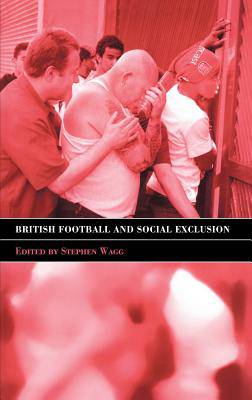
- Retrait gratuit dans votre magasin Club
- 7.000.000 titres dans notre catalogue
- Payer en toute sécurité
- Toujours un magasin près de chez vous
- Retrait gratuit dans votre magasin Club
- 7.000.0000 titres dans notre catalogue
- Payer en toute sécurité
- Toujours un magasin près de chez vous
Description
This book takes stock of British football at the beginning of the twenty-first century. It is written by a range of concerned academics and writers, all of whom have an active relationship with the contemporary football world. The book assesses the changes that have occurred in many areas of football culture and the political and academic debates that have accompanied these changes.
English football in particular, it seems, is 'fat city'. The Premiership, now eight years old, has, via satellite television, become a globalised phenomenon: there are Liverpool supporters in Bangladesh, Chelsea fans in sub-Saharan Africa and Manchester United followers across the globe. Grounds are full. Top class football attracts people to bars and pubs in huge numbers. Hooliganism appears a thing of the past. Everyone seems to love football and/or to support a team. The British football media are generally euphoric in their rendering of contemporary football culture. However, the contributors to this book argue that the heavily commodified, PR-driven and cartelised British football world, with which so many contemporary politicians and other public figures rush to identify themselves, has either created, exacerbated or continued to ignore serious problems of social exclusion problems of class and community, race and ethnicity, gender, sexuality and age.Spécifications
Parties prenantes
- Auteur(s) :
- Editeur:
Contenu
- Nombre de pages :
- 280
- Langue:
- Anglais
- Collection :
Caractéristiques
- EAN:
- 9780714652177
- Date de parution :
- 30-09-04
- Format:
- Livre relié
- Format numérique:
- Genaaid
- Dimensions :
- 162 mm x 235 mm
- Poids :
- 2490 g

Les avis
Nous publions uniquement les avis qui respectent les conditions requises. Consultez nos conditions pour les avis.






